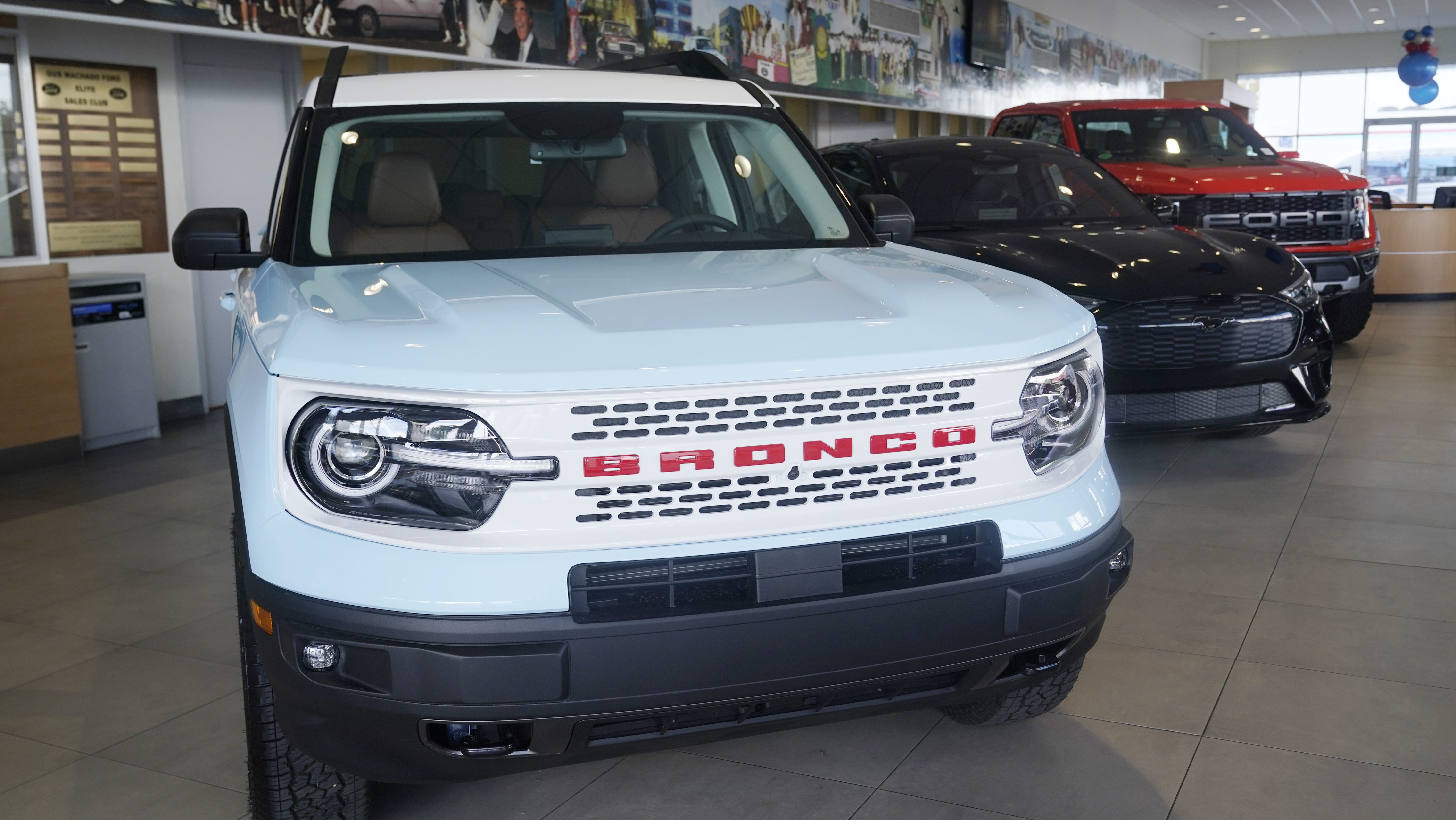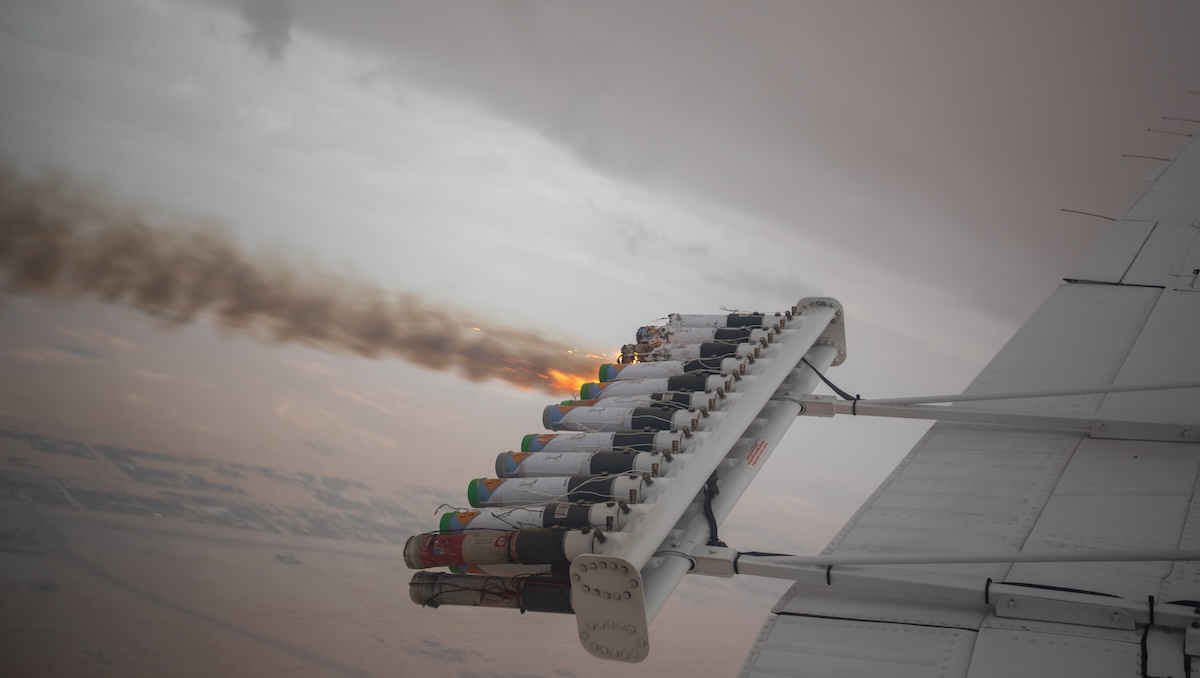Democratic presidential candidate Beto O'Rourke's recent vow to take away people's AR-15 and AK-47 rifles raised one big question: How is it possible to round up the millions of such guns that exist in the United States?
The number of AR-15 and AK-47s in the U.S. is estimated at a staggering 16 million, creating logistical challenges to take them out of circulation. Many gun owners are also unwilling to turn over the weapons, and if the government offered to buy them all back at face value, the price tag could easily run into the billions of dollars.
O'Rourke's pointed declaration during a recent debate — "Hell yes, we're gonna take your AR-15, your AK-47" — stoked longstanding fears among gun owners that Democrats are less interested in safety or finding a middle ground, and just want to confiscate guns. Even some gun-control advocates aren't so sure that confiscating firearms will work.
"In some regards, this horse is out of the barn," said David Chipman, a retired agent with the federal Bureau of Alcohol, Tobacco, Firearms and Explosives and now the senior policy adviser for the Giffords group. "For years we've allowed these to be sold."
O'Rourke's remarks came in the wake of several high-profile shootings, including two in his home state of Texas that involved AR- or AK-style guns. A summer of carnage was marked by shootings in Gilroy, California; El Paso, Texas; Dayton, Ohio; and in a 10-mile stretch between Midland and Odessa, Texas. In all, more than 40 people were killed and about 100 were wounded in the attacks.
The prospect of significant gun measures has faded in recent weeks under the Republican-controlled Senate and President Donald Trump, and Democratic candidates have offered a range of proposals for what they would do on guns if elected president.
O'Rourke believes that most people would follow the law and turn their weapons in under his proposal for a mandatory buyback program and assault weapons ban. He also wants to outlaw high-capacity magazines and expand background checks.
U.S. & World
Cory Booker has proposed a similar program that would involve civil penalties for those who fail to comply and hand in their AR-15s. They would not be subject to criminal offenses, however.
There is a precedent for the ideas proposed by O'Rourke and Booker, as difficult as they would be to implement.
The Trump administration recently banned bump stocks — devices that allow semiautomatic long guns to mimic fully automatic fire — and ordered owners to turn them in to be destroyed. But there were only about a half million of those devices, and they cost far less than an AR, which can run upwards of $1,000 or more. The ban was largely based on an honor system, though Washington state did offer a buyback program that quickly exhausted the $150,000 set aside to shell out $150 each device turned in.
In 1994, then-President Bill Clinton enacted an "assault weapons" ban, at a time when there were an estimated 1.5 million of them in circulation. Existing owners were allowed to keep them, however, and once the ban expired a decade later, sales resumed and boomed.
Machine guns like M-16s were outlawed by Congress in 1986, but they can still be owned under a tightly regulated process. Small numbers remain in circulation, largely because of the restrictions.
Democratic candidates pushing gun buybacks have also pointed to similar moves in Australia and New Zealand. However, the number of AR-style long guns in those countries pales in comparison to the United States, and neither has gun rights enshrined in their constitutions.
Chipman believes an assault weapon ban should be handled similar to the machine gun rules, requiring they be registered and heavily regulated but not confiscated.
"I think it would be far more likely that we would find more of the weapons under comprehensive regulation by the government than sort of a forced buyback ban scenario," he said.
There's also the optics of the government taking away guns, presenting another challenge for the Democratic proposals.
The idea of outlawing and then rounding up firearms alarmed many gun owners who believe it will not solve the problem of gun violence and would only serve to take firearms away from law-abiding Americans. They point out that while AR-style guns have been used in some high-profile mass shootings, most gun deaths involve handguns.
"Once you start talking about taking guns away, especially legally owned firearms by responsible gun owners, you're just going to alienate a whole huge portion of American citizens. They're just not going to stand for that," said Chris Waltz, the president and CEO of AR-15 Gun Owners of America. "This is what they feared."
The marketplace for the guns has shifted as well. Connecticut-based gunmaker Colt announced last week it was ceasing production of AR-15 style rifles for the civilian market, citing a saturated market. The company will keep making the guns for law enforcement, which is a big portion of the market.
Of the estimated 16 million AR-style guns that are in circulation, about half of them are owned by current or former members of the military or law enforcement, according to the National Shooting Sports Foundation.
Then, there are the logistics of actually getting millions of firearms handed over. Some law enforcement experts question whether a mass confiscation of firearms could be done effectively or safely.
Even some self-identified liberals who own firearms question the legality of gun confiscation and even the practicality.
"Constitutional rights aren't based on what you like. What's the slippery slope of this?" said Lara C. Smith, the national spokeswoman for the Liberal Gun Club, a nonprofit group of liberal gun owners. "If they're going to take away these rights, what other rights are they going to take away?"
Smith, who lives in San Diego and owns an AR-15, contends that calls for outlawing AR-style firearms are based on ignorance and misunderstanding. The rifles are simply modular, she said, capable of being customized with different grips, adjustable stocks and scopes, for example — features that might give it a military-style appearance, but do not make it any more lethal than any other firearm.



